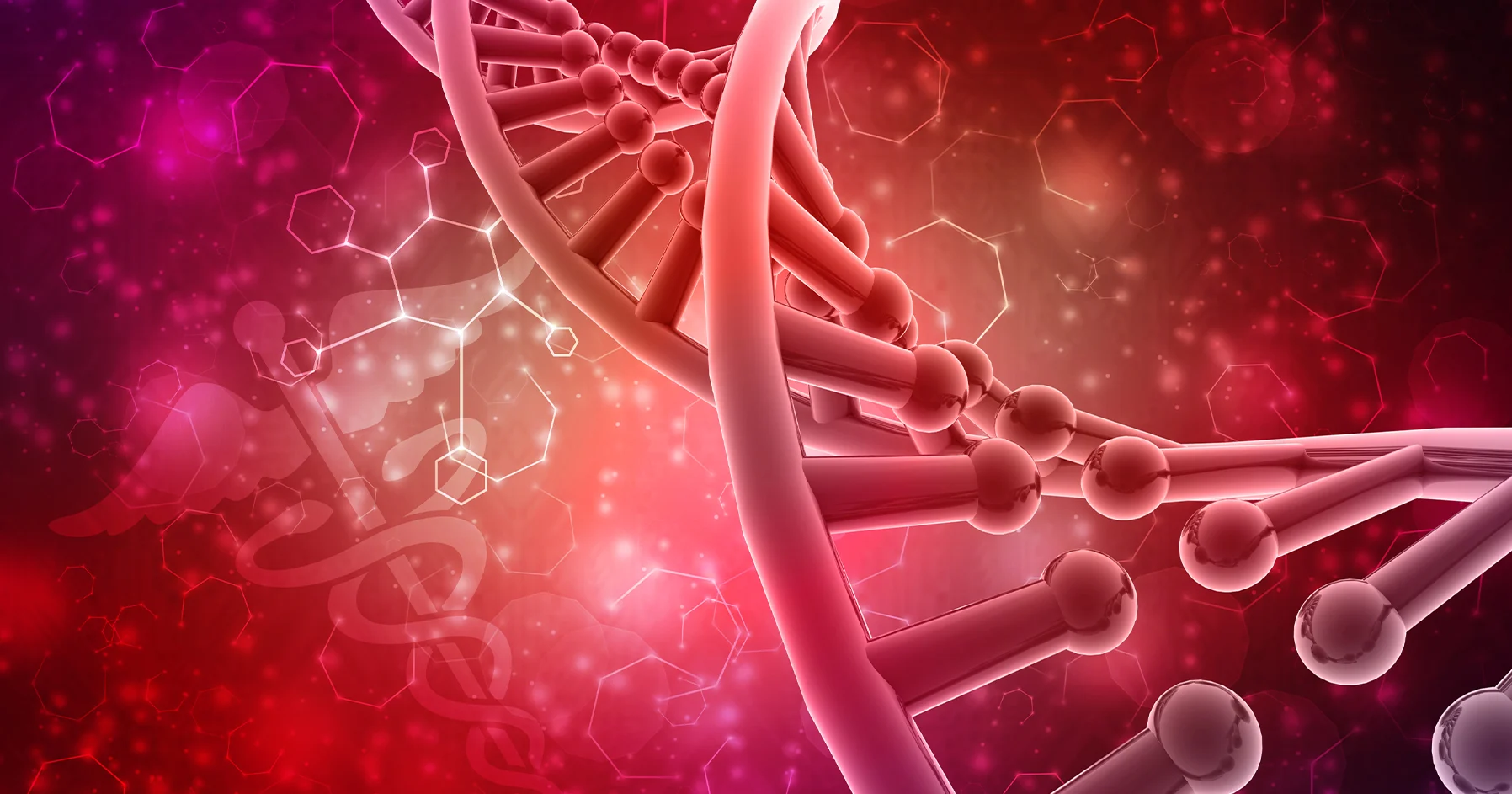
When it comes to our bodies, hormones play a vital role in regulating various functions and processes. From influencing our mood to controlling growth and development, hormones are the messengers that allow our body to communicate and function properly.
In this article, we are going to explore 18 unbelievable facts about hormones that will fascinate and astonish you. From the extraordinary powers of oxytocin to the impact of stress on cortisol levels, we’ll dive deep into the world of hormones and unveil some surprising secrets.
Whether you’re curious about how hormones affect our mental well-being or want to learn more about the hormone fluctuations that occur during pregnancy, you’re in for a treat. Get ready to be amazed by the incredible complexity and importance of these chemical messengers that shape our lives in ways we never imagined possible.
Key Takeaways:
- Hormones are chemical messengers that control many aspects of our bodies, like growth, mood, and metabolism. They can be influenced by lifestyle choices, so making healthy decisions is important for hormonal balance.
- Understanding hormones is crucial for overall health. They affect everything from our emotions to our appetite. So, the next time you feel different, remember that hormones might be the reason!
Hormones are chemical messengers
Hormones are chemical messengers secreted by various glands in the body. They travel through the bloodstream to target cells and tissues, where they regulate various physiological processes.
Hormones play a crucial role in the body
Hormones are responsible for regulating different bodily functions, including growth and development, metabolism, reproduction, mood, and stress response.
There are several types of hormones
The body produces different types of hormones, including steroid hormones (such as estrogen and testosterone), peptide hormones (such as insulin and growth hormone), and amino acid derivative hormones (such as adrenaline).
The pituitary gland is known as the “master gland”
The pituitary gland, located at the base of the brain, is often referred to as the “master gland” because it controls the secretion of hormones from other glands in the body.
Hormone imbalances can have significant effects
Imbalances in hormone levels can lead to various health issues, including infertility, mood disorders, weight gain or loss, and even certain diseases like diabetes.
Insulin regulates blood sugar levels
Insulin, produced by the pancreas, plays a vital role in regulating blood sugar levels. It allows cells to take in glucose from the bloodstream and use it for energy.
The thyroid gland controls metabolism
The thyroid gland produces hormones that regulate metabolism. It influences how quickly the body burns calories and controls the production of heat and energy.
Cortisol is the “stress hormone”
Cortisol is often referred to as the “stress hormone” because it is responsible for the body’s response to stress. It helps regulate blood pressure, immune function, and the body’s inflammatory response.
Growth hormone promotes growth and development
Growth hormone, produced by the pituitary gland, plays a crucial role in promoting growth and development, especially during childhood and adolescence.
Testosterone is important for both men and women
Although commonly associated with males, testosterone is also produced in smaller amounts by females. It plays a role in maintaining muscle mass, bone density, and has various other functions in both sexes.
Estrogen is essential for reproductive health
Estrogen is a vital hormone in females and plays a crucial role in regulating the menstrual cycle, promoting fertility, and maintaining bone health.
The pineal gland produces melatonin
The pineal gland, located in the brain, produces melatonin, a hormone that regulates sleep and wakefulness. It helps to synchronize the body’s internal clock with the day-night cycle.
Oxytocin is the “love hormone”
Oxytocin, often called the “love hormone,” is released during social bonding activities like hugging, kissing, and breastfeeding. It promotes trust, connection, and positive emotions.
Hormones influence mood and emotions
Hormones, such as serotonin and dopamine, play a significant role in regulating mood and emotions. Imbalances in these hormones have been linked to conditions like depression and anxiety.
Hormones can affect appetite and weight
Hormones like leptin and ghrelin influence feelings of hunger and satiety, thereby playing a role in regulating appetite and body weight.
Hormones regulate sexual development and function
Hormones like testosterone and estrogen play a crucial role in sexual development and function. They contribute to the development of secondary sexual characteristics and influence libido.
Hormones can impact cognitive function
Hormones have an impact on cognitive function, memory, and concentration. Fluctuations in hormone levels, such as during pregnancy or menopause, can lead to changes in cognitive abilities.
Hormones can be influenced by lifestyle factors
Lifestyle factors like diet, exercise, sleep, and stress levels can influence hormone levels in the body. Making healthy lifestyle choices can help maintain hormonal balance.
These 18 unbelievable facts about hormones only scratch the surface of the fascinating world of hormone regulation in the human body. Understanding the role of hormones is essential for maintaining overall health and well-being.
So next time you experience a change in mood, appetite, or energy levels, remember that hormones might be at play!
Conclusion
In conclusion, hormones play a vital role in regulating various processes in our bodies. From influencing our mood and behavior to controlling growth and metabolism, these chemical messengers are truly remarkable. Understanding the fascinating facts about hormones helps us appreciate their significance in maintaining our overall well-being. Whether it’s the incredible ability of hormones to communicate between cells or their role in the development and function of our organs, hormones continue to amaze scientists and researchers alike. So, the next time you experience a sudden rush of emotions or notice changes in your body, remember that hormones might just be the invisible force behind it all.
FAQs
1. What are hormones?
Hormones are chemical messengers produced by various glands in the endocrine system. They are released into the bloodstream where they travel to target cells or organs to regulate their function.
2. How do hormones affect our mood?
Hormones like serotonin, dopamine, and oxytocin play a crucial role in regulating our mood. Imbalances in these hormones can lead to mood disorders such as depression and anxiety.
3. Can hormonal imbalances cause weight gain?
Yes, hormonal imbalances can contribute to weight gain. Hormones like insulin, cortisol, and leptin influence our metabolism, appetite, and fat storage, and imbalances in these hormones can lead to weight gain.
4. Are there natural ways to balance hormones?
Yes, lifestyle factors such as maintaining a healthy diet, exercising regularly, managing stress, and getting enough sleep can help balance hormones naturally. Additionally, certain herbs and supplements may also support hormonal balance.
5. Can hormones affect fertility?
Yes, hormones play a crucial role in fertility. Hormones like estrogen, progesterone, and testosterone regulate the menstrual cycle, ovulation, and sperm production, impacting fertility in both men and women.
Hormones are truly remarkable chemical messengers, regulating countless bodily functions and influencing our emotions. Understanding how hormones are released, interact with receptors, and participate in feedback loops can provide valuable insights into maintaining optimal health and well-being. Explore more captivating facts about hormone release, surprising details on hormone-receptor interactions, and intriguing information about hormone feedback loops to deepen your knowledge of these powerful substances that shape our lives.
Was this page helpful?
Our commitment to delivering trustworthy and engaging content is at the heart of what we do. Each fact on our site is contributed by real users like you, bringing a wealth of diverse insights and information. To ensure the highest standards of accuracy and reliability, our dedicated editors meticulously review each submission. This process guarantees that the facts we share are not only fascinating but also credible. Trust in our commitment to quality and authenticity as you explore and learn with us.


